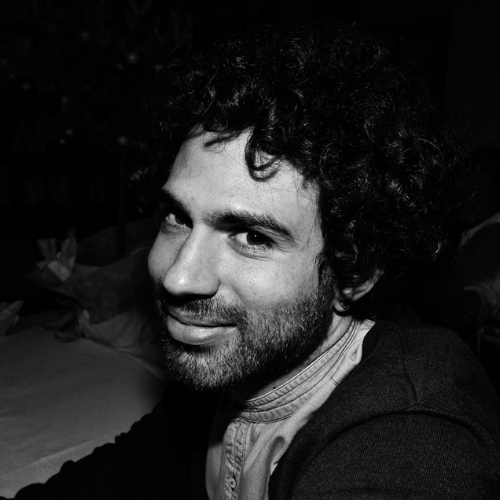Can DNA tell us something about sexual orientation?
6 November 2018 | Written by Thomas Ducato
A study could have highlighted genetic variants associated with "non-heterosexuality". Let's try to make things clear

There is no “gay gene” but there may be some genetic variants, four to be precise, strongly associated with “non-heterosexual behavior”. This is the content of a study, presented at the annual meeting of the American Society of Human Genetics, which has been much discussed in recent weeks. Talking about the results was Andrea Ganna, researcher at the Broad Institute of Cambridge, Massachusetts and Harvard Medical School of Boston.
The issue is controversial, in particular in the light of the discrimination that homosexual people are still suffering in many parts of the world and deserves a deepening that does not concern only purely genetic aspects but also ethical, philosophical and political.
The research, the largest ever carried out on the genetics of sexual orientation, examined the data of 450 thousand people contained in the Biobank of the United Kingdom and in that of the famous genetic testing company 23andMe. Subjects were asked if they had ever had non-heterosexual relationships: the data of those who answered affirmatively, almost 27 thousand people, were analyzed to highlight any variations in the DNA common in this sample of individuals. The research team pointed out that there is no “gay gene”, which is able to identify non-heterosexual people, but that four genetic variations have been found (in chromosomes 7, 11, 12 and 15) that represent small genetic effects that they could influence non-heterosexuality. According to the researchers, the four identified variants would also be related to some mood and mental health disorders, which could be due to the greater possibilities of non-heterosexual people to suffer discrimination during their lifetime.
The scientific community, divided between those who believe the research is a step forward in understanding the role of genes in sexuality and who, on the contrary, criticizes the methodological approach, is still discussing about the study.
“Unfortunately, we, as human beings – Massimo Delledonne, professor of Genetics at the University of Verona, explained to Impactscool Magazine – we do not accept that the sequencing of the human genome has revealed that in our DNA is written a lot of what we are. Yet we should take note of the fact that a human being, unlike the other “organisms”, has control over many of his behavioral characteristics. Having a predisposition does not therefore mean manifesting that characteristic. There is always the interaction with the external world, the environment, and there is always the strong component of control of the stimulus of the senses and the desires that derive from it and that, indeed, has elevated human kind and made it different from other animals. This applies not only to the theme of this study, but to all the predispositions highlighted by DNA. I was present at the meeting of the American Society of Human Genetics – continues Delledonne – and frankly I do not see anything strange in the fact that there may be a genetic component that favors a sexual choice or the other, but I totally agree that, seen that homosexuality is considered a crime in some countries, we should not give too much emphasis to these results, which are still not too solid from a statistical point of view even if extremely interesting from the scientific point of view”.
Delledonne also highlights another crucial aspect of the issue, something we already discussed on Impactscool Magazine: that of sharing or selling genetic data for commercial purposes: “Today’s challenge – concludes Delledonne – is to succeed in making everyone understand we attach importance to keeping all sensitive information contained in our DNA private. The genetic data is a private data, an intimate and personal thing, and this must remain”.
Among those who made some observations on the methodological approach of the research, there is Carlo Alberto Redi, director of the Laboratory of Development Biology of the University of Pavia.
“It’s a very serious and heartfelt subject, with many facets. It is important to clarify, therefore, that with the tools currently available in genetics and experimental biology, we are not able to give an unambiguous answer to this topic. Sexual behavior depends on many factors, both genetic and environmental. Even with genome association studies we can not achieve significant results: we are talking about correlations, which are very different from cause-effect relationships. Another question concerns the sample of people involved, which could be overestimated or underestimated: in the past, in fact, investigations on sexual orientation have shown a poor reliability of the answers provided by the respondents. If we add to all this the fact that sexual choice is an important part influenced by the environment, we understand how the result of this research is very foggy and is not able to offer a substantial correlation, as stated also by the authors themselves. The message that came out of it, however – concludes Redi – is very strong and therefore we need to pay close attention: we risk giving the citizens a wrong message, a sort of genetic determinism”.
The research, given the topic it deals with, poses questions of an ethical and philosophical nature and could also have consequences in the political sphere. For this reason, we asked for a comment on the news also to Lorenzo Bernini, professor of Political Philosophy at the University of Verona and director of the PoliTeSse research center for policies and theories of sexuality. “For two centuries – explains Bernini – the search for the biological causes of gender identity and sexual orientation has been an obsession with the scientific community. In the nineteenth century there was an insistent attempt to prove, without success, that the ‘inversion’ (as it was called at the time) was the result of an organic degeneration. During the twentieth century numerous studies were published aimed at demonstrating the difference of the brains of homosexual persons from those of heterosexual people, and promptly denied by subsequent researches that have reported flaws and biases. Now the word can only pass to genetics… From the news that has been reported by the media it seems to me that this research does not show anything certain and that it contains only the faint hypotheses. We will wait the next few months to see if any new study will disprove them.”
Even according to Bernini, one of the most controversial aspects of the study is the methodological approach. “Significant – he continues – is that we have not sought the genes specific to homosexuality, bisexuality, pansexuality or gender non-conformity, but that research has distinguished between cisgender exclusively heterosexual and all others, and that has attempted to find which genetic variants could keep the group of these ‘other people’ together, and then look for the possible relationships between these variants and mental distress. My impression is that the research has something in common with many previous research, up to the nineteenth-century degenerescence: the assumption that being cisgender and heterosexual is the norm, from which everything else is a potentially pathological deviation. This assumption is a prejudice that is called heterosexism, and it not scientific but just very political.”
This research has touched on a particularly delicate aspect, around which a strong political and social debate has been developing for decades. This study, however, is not an isolated case: on the one hand, there are many researches that have tried to show a correlation between our genes and certain individual characteristics, on the other, the paid genetic tests have accustomed us to promises difficult to realize, like “Give me your DNA and I’ll tell you which sport you’re a natural in!”, or “Find out if you’re a leader thanks to your DNA”.
So, what can DNA really tell us? Only time and improvement in our ability to understand our genome will allow us to answer these questions. Until then, such complex topics and research that dealt with issues so debated, must be deepened and addressed critically.





